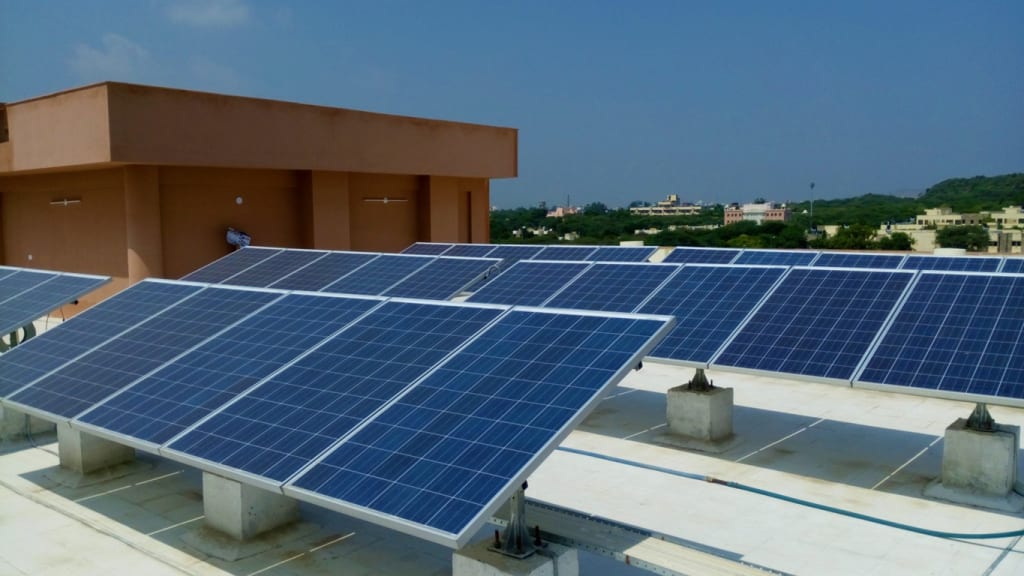The Impact of Solar Panels on Energy Independence in 2024
Enhancing National Resilience Through Solar Energy Adoption

In 2024, the drive toward energy independence is more robust than ever, with solar panels playing a pivotal role. This year has seen remarkable advancements in solar technology and significant contributions from solar companies and manufacturers, shaping the global energy landscape.
The Evolution of Solar Technology
Solar technology has made tremendous strides over the past decade, leading to more efficient and cost-effective solar panels. In 2024, these advancements have reached a peak, making solar energy a viable alternative to traditional fossil fuels for many households and businesses. The efficiency of solar panels has improved, with the latest models converting up to 24% of sunlight into usable energy. This increased efficiency has made solar panels an attractive investment for those seeking to reduce their dependence on non-renewable energy sources.
The Role of Solar Companies
Solar companies have been at the forefront of the renewable energy revolution. They have not only innovated but also made solar energy more accessible to the average consumer. In 2024, companies like Tesla, SunPower, and First Solar have expanded their operations, offering a range of products from residential solar panels to large-scale solar farms. These companies have also introduced flexible financing options, making it easier for homeowners and businesses to install solar panels without a significant upfront cost.
Additionally, solar companies are investing in research and development to enhance the durability and longevity of solar panels. Innovations such as bifacial panels, which can absorb sunlight from both sides, and solar tiles that blend seamlessly with roofing materials, have broadened the appeal of solar installations.
Contributions from Solar Panel Manufacturers
Solar panel manufacturers have played a critical role in driving down the cost of solar technology. In 2024, manufacturers like JinkoSolar, Canadian Solar, and LG are producing high-quality panels at a lower cost due to advancements in manufacturing processes and economies of scale. These cost reductions have made solar energy more competitive with traditional energy sources, furthering the goal of energy independence.
Moreover, manufacturers are focusing on sustainability throughout the production process. The use of recycled materials, reduction of waste, and implementation of energy-efficient manufacturing practices are helping to minimize the environmental impact of solar panel production.
Economic and Environmental Benefits
The widespread adoption of solar panels has significant economic and environmental benefits. Economically, the solar industry is creating jobs at a rapid pace. According to the International Renewable Energy Agency (IRENA), the solar sector employed over 11 million people globally by the end of 2023, and this number is expected to grow in 2024. These jobs range from manufacturing and installation to maintenance and research, providing a diverse array of opportunities.
Environmentally, solar panels contribute to the reduction of greenhouse gas emissions. By replacing fossil fuel-based energy with solar power, we can significantly lower our carbon footprint. In 2024, the increased use of solar energy is expected to prevent the release of millions of tons of CO2 into the atmosphere, making a substantial impact on climate change mitigation.
Challenges and Future Outlook
Despite the positive trends, there are challenges to the widespread adoption of solar energy. Energy storage remains a critical issue, as solar power generation is intermittent and dependent on weather conditions. Advances in battery technology, such as Tesla’s Powerwall and other large-scale storage solutions, are essential to overcoming this hurdle.
Grid integration is another challenge. As more solar power is generated, ensuring that the energy grid can handle the influx and distribution of this energy efficiently is crucial. This requires upgrades to existing infrastructure and the development of smart grid technologies.
Looking ahead, the future of solar energy appears bright. Continued advancements in technology, supportive government policies, and the growing awareness of environmental issues are likely to drive further adoption of solar panels. As solar companies and manufacturers continue to innovate and reduce costs, solar energy will play an increasingly central role in achieving energy independence.
Conclusion
In 2024, solar panels are not just a component of a sustainable future—they are a cornerstone of energy independence. Solar companies and manufacturers are driving this transformation, making renewable energy more accessible, affordable, and efficient. While challenges remain, the progress made thus far and the ongoing innovations promise a future where solar energy is a dominant force in the global energy market. By harnessing the power of the sun, we are taking significant steps towards a more sustainable and independent energy future.
About the Creator
Bluebird Solar
With a 40-year-old reputed brand name, Bluebird Solar is one of India's leading solar panel manufacturers.
Enjoyed the story? Support the Creator.
Subscribe for free to receive all their stories in your feed. You could also pledge your support or give them a one-off tip, letting them know you appreciate their work.






Comments (2)
Hey, just wanna let you know that this is more suitable to be posted in the FYI community 😊
Interesting and delicious content, keep posting more now